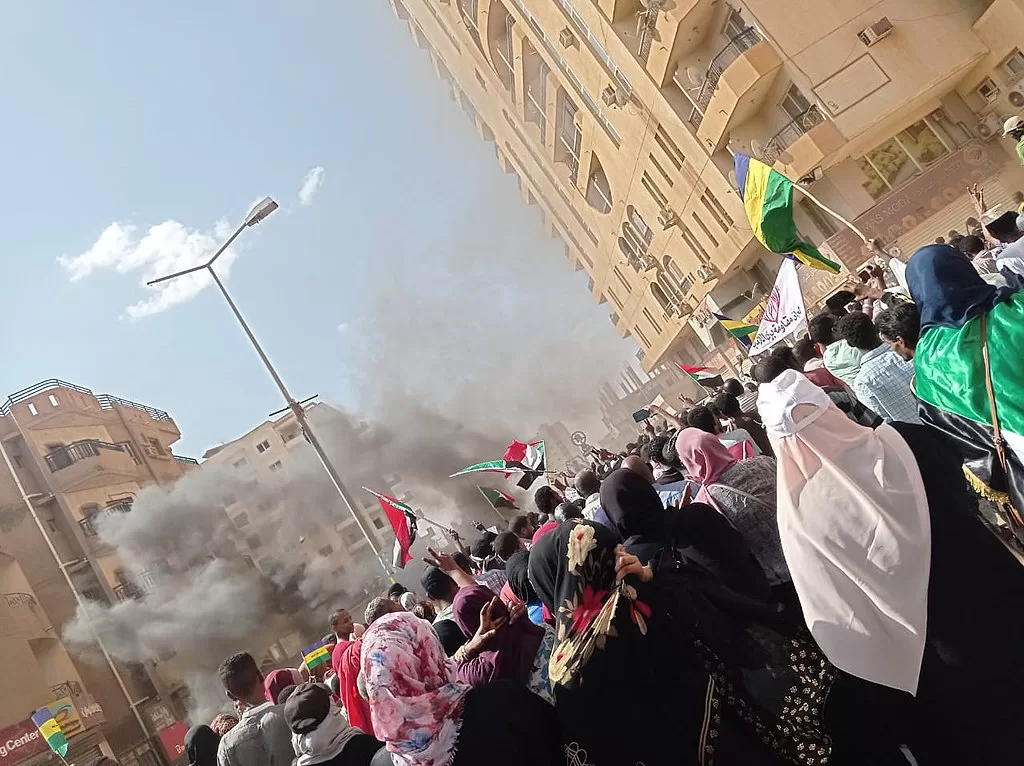Reporting on Sudan has been a complex challenge for decades. During the reign of President Omar El-Bashir (1989-2019) Sudan was one of the most difficult media environments in the world, with journalists facing censorship, harassment and imprisonment on a routine basis. The Revolution of 2018/2019 introduced a period of hopeful respite, with the re-establishment of an independent journalist’s union having over a thousand members, hundreds of whom voted for the Syndicate’s formation. However, many of these gains have been lost in the months since April 2023.
Security is one of the primary issues. The simple act of asking questions, or holding a camera, places a target on your back. “Revealing oneself as a journalist is perilous,” said one respondent in a recent survey, a concern echoed widely in the journalistic community. A Unesco supported poll, conducted by NGO Media in Cooperation and Transition in November 2023, revealed more than half of the respondents had experienced physical (53%) and digital (51%) threats. In September 2023, Sudanese Journalists’ Syndicate reported 249 violations against journalists, including murder, in the four months since the outbreak of the war. This number did not include detentions of the team of the Sudan National Broadcasting Corporation, Hala96 FM, Alhurra Channel and RT in Khartoum, due to lack of available data.
Threats are not confined to the reporters themselves, with many journalists’ families also the victims of attacks. In a recent investigation, the Arab Reporters for Investigative Journalism documented the story of Manal Ali, kidnapped and tortured for her independent reporting into rape incidents in Darfur.
“They had a list…and the Rapid Support Forces (RSF) were searching for us by name. They destroyed my house completely,” Manal told the ARIJ. While being held by the RSF, she was severely beaten, tortured and threatened. “We killed some of your family members, and we will torture you by letting you see the rest of your family being killed,” she was told. “Then, killing you will become easy.”
In addition to the critical security situation, even accessing basic utilities presents challenges. The availability of electricity, reliable internet connections and telecom networks cannot be taken for granted, which makes reporting almost impossible. Many journalists have fled to neighbouring countries like Chad, Egypt and Eritrea. For those who stayed, only 23% receive a paycheck, typically under $100 a month.
This is a “sector faced with an existential crisis” said Tawfik Jelassi, Unesco's assistant director-general for communication and information.
In a twisted metaphor, at the outset of the conflict, the premises of the national Radio and Television Corporation were taken over by the RSF and turned into military barracks. Numerous media outlets have closed, and international journalists are having their entry visas into the nation denied. For journalists from the Sudanese diaspora, or with residency in Sudan, entry still requires clearance either from the Sudanese Armed Forces or the RSF, depending on the area in question. This is both difficult to achieve and comes with no guarantee of safety, due to the febrile nature of the conflict.
The high risk for journalists in Sudan has led to a dearth of professional reporting from the ground. In this environment it’s unsurprising that self-censorship is flourishing. Those journalists who remain in the country report either practising self-censorship or dealing with direct requests to modify, delete or publish specific content. It is even becoming challenging to report facts without being seen as “taking a side”.
At the same time as the war has dragged on, journalists who might have ordinarily been reserved about their political inclinations feel like they do have to take a position.
“This war is being framed as a war about the very existence of the Sudanese state,” said veteran journalist Isma’il Kushkush.
It is becoming difficult to find nuanced positions, and the concept of objectivity itself is being challenged by readers. In a conflict that is dividing the nation, even the journalists are being polarised. For citizen journalists, this challenge is even more pronounced, with readers and social media users frequently attacking those sharing news as supporting one of the warring parties.
There are reports of efforts to establish new platforms in Sudan to bolster and enrich the media ecosystem. One such example is the US-based Sudan Broadcasting Corporation, involving Luqman Ahmed, the former head of Sudan Radio and TV Corporation. The SBC joins Radio Dabanga and Sudan Tribune as news sources on Sudan based outside the direct reach of the state. But although a handful of Arabic-language satellite news channels, including Al Jazeera and Al-Arabiya, continue to report from the ground, the challenges to communicating the events of Sudan’s war to the world are extreme.
“People want to know who is the good guy and who is the bad guy,” said Kushkush. The problem is the complexity of Sudan’s situation eludes a simple narrative. And, in a global context where numerous other conflicts are live and pressing - including Gaza and Ukraine - there is only so far attention spans and resources can stretch.
Still, that can’t be an excuse. In 2023, Sudan topped the International Rescue Committee’s Emergency Watchlist, analysing countries “most likely to experience a deteriorating humanitarian crisis”. This month, the Clingendael Institute reported that looming famine means most likely “seven million people will face catastrophic levels of hunger by June 2024…and a half million people will die.”
At the end of the day, whatever the complexities, “it’s a human story” as Kushkush said. “The tragedy of displacement and death.”






